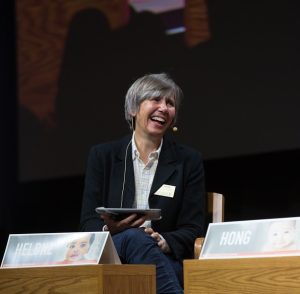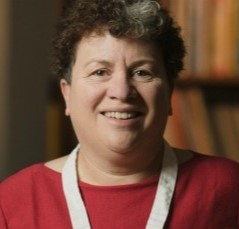
Food Movements – Moving Food
Perugia Food Conference
June 9-12, 2022 in Perugia, Italy

Food Movements – Moving Food
Perugia Food Conference
June 9-12, 2022 in Perugia, Italy
2022 – FOOD MOVEMENTS/MOVING FOOD

June 9-12, 2022 – Keynote speaker was Prof. Krishnendu Ray (New York University)
Conference Summary
People, food and agricultural products are in constant movement, affecting landscapes, material practices, and cultural representations. This conference aims to address what happens when people and food products move through regional, national, and international networks. What are the effects of these movements on local, regional, national, and international communities and cultures? What additional actions and reactions do they precipitate? How has the Covid pandemic altered (or shaped) these movements?
In posing these questions, the conference seeks to understand continuities/discontinuities in current and past long-distance food exchanges, the relationships between “authentic” and diasporic foodways, the forced movement of agricultural workers and their crops in the face of climate change and a global pandemic, and the impact of economic and social disparities on current and future food movements.
2018 – EXPLORING ETHICS THROUGH FOOD CHOICES
June 7-10, 2018 – Keynote speakers were Prof. Lisa Heldke (Gustavus Adolfus College), Prof. Michael Herzfeld (Harvard University), and Prof. John Lang (Occidental College).



Conference Summary
Food and ethics intersect at many levels, from personal daily choices on where to shop and what to eat to cultural norms and regulations, policy implementations on national and international scales, and debates over scientific research on biotechnology. This conference addressed these relationships from the perspective of food choices.
The word “ethics” comes from the Greek word ethos – broadly understood as rules guiding human behavior –, and ethical concerns with food intake are as old as the concept itself. As a result, various ways of critically approaching food production, distribution, and consumption have emerged over the course of history. For instance, Ancient Greeks focused on temperance, Jews and Muslims on licit and illicit foods, and Christians – especially during the Middle Ages – on monastic askesis or spiritual self-discipline.
More recently, growing scientific and public interest in food have sparked ethical debates around issues such as the use of GMOs, the development of alternative agricultural systems, the local food movement, animal welfare, and food waste. The social dimensions of these debates have in turn attracted increased attention, especially fair trade relations, the reduction of social inequalities, and the exploitation of migrant agricultural labor.
The conference explored how food-related choices shape and are shaped by ethical discourses, practices, and representations in various settings. It will look at contemporary and historical issues surrounding the ethics of food and addressed the following topics:



Conference Summary
Geographer Denis Cosgrove, arguing that landscape is an ideological concept, says that “it represents a way in which certain classes of people have signified themselves and their world through their imagined relationship with nature […]”. This conference focused on how cultural and social processes contribute to the creation of landscapes and their perception, and examined the relationship between food and landscapes. How have different groups shaped landscapes through food production and consumption? How have people altered urban areas with their food-related activities? Which rules have been designed to protect and enhance landscapes linked to specific foods and cultural heritages?The following were the major areas of reflection considered:
– Landscape as heritage: local knowledge and food productions;
– Creating landscapes through fiction;
– Landscapes and communities: social movements for food and the environment;
– Water shaping landscapes: water management for food production, livelihoods and fisheries;
– Food in endangered landscapes;
– Tourism, food and landscapes;
– Urban landscapes and food distribution.



Conference Summary
This conference explored the multifaceted connections between a place and its food, as it is represented, produced or consumed in relation to the identity of people and the spaces they inhabit. One of the debated outcomes of globalization is the increasing importance of locally recognizable food production, and the promotion of the cultural values connected to
it. Particularly in the last decades the European Union has increasingly devoted relevant political and economic efforts in defining an articulated system of certification to promote and protect local products and specialties (PDO, PGI, TSG).
On a less institutional level, independent associations, such as Slow Food and volunteer groups or committees linked to particular places or productions, are striving to define and defend typical and traditional food as key elements in the construction of niche markets and in the representation of cultural specificities. From the original French concept of terroir, through other local designations (i.e. the Italian prodotto tipico, the German regionaltypische Spezialität etc.), the underlying connection between locality and quality of food has triggered debates on economic development, sustainability and redefinition of cultural belongings.
We encouraged those interested in participating in the conference to submit an abstract for consideration. Topics included:
• Terroir and locality in food products around the world.
• The concept of “one’s own food” versus that of “others” to reinforce or challenge individual and collective identity.
• Terroir as a way of social distinction à la Bourdieu.
• The formalization of “localness”, how it is negotiated through laws, regulation and procedural guidelines, and the conflicts
that arise through this process.
• The role of journalism, mass-media, cinema and literature in the representation of local food practices and regional,
national and transnational identities.
• Promotion of local food and culinary practices in the tourism industry.
• The relation between local food and agricultural policies, transnational markets and industrial strategies.
• The link between local food, socio-political and environmental movements.

